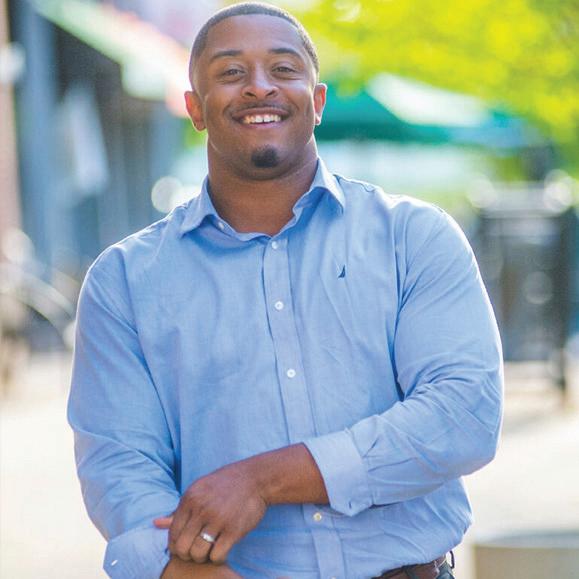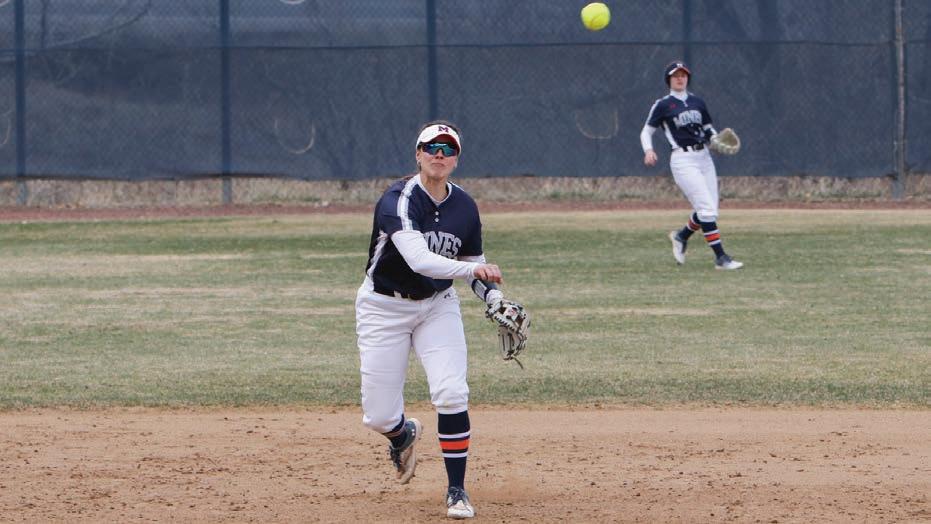
2 minute read
STEADMAN
alone.
Falling is one of the more serious complications of the disease. Falls can be fatal if they happen at the wrong time in the wrong place, like on a staircase or slipping on ice somewhere on the ve-and-a-half acre property in Bailey where my parents live.
He did experience a couple of falls this winter. Both were serious enough that they required hospitalization and surgery, followed by weeks of rehab in a nursing home. During one of our visits in the reasons for antique shops’ sustained popularity.



“(People seek out) childhood memories,” McCoy said. “Stuff that’ll last, people come in and say, ‘My mom had this,’ they need to have that again to relive their childhood.”
Crawford said his family got into nursing home, in the metro area, my dad said he’s doing OK. en he said, “I want to be closer to the mountains.” I told him he needs to try to remember not to fall so he could be at home in the mountains again.
Now he has a walker, but his Parkinson’s makes him forget that he needs to use it. e dementia seems to be coming faster. So, it’s a cycle: he tries to get up out of his chair and walk somewhere and somebody, usually my mother, has to stop him or he likely falls again. Falling is now part of my dad’s life – and our family’s.
It is still unknown why or how people develop Parkinson’s. Research on the causes and e orts to the antiques business because of a love for history and historic items cultivated from time spent with grandparents as kids. lessen the severity are making progress. According to the Parkinson’s Foundation, “scientists believe a combination of genetic and environmental factors” are to blame. Still, there is no cure for Parkinson’s. I like to think that someday there will be one. Science is already going in the right direction, with rst-of-its-kind surgeries already developed and being perfected, and new movement-based therapies that directly target the parts of the brain that help people with Parkinson’s gain control of their movement.



“We tell people it’s a walk down memory lane,” Crawford said. “You’ll see something that reminds you of another time, maybe a simpler time, or childhood.
If a big breakthrough on Parkinson’s comes, it probably will not be in time for my dad, maybe not even for me if I ever develop the disease. I hold hope for the possibility for
Something you haven’t thought of in maybe 50, 60 years.
“I’ll be reminded of my grandma, my family and that’s what it is for me, the stories and experiences of everything that’s here,” Crawford continued. “We say, ‘There are a lot of ghosts under this roof.’” big improvements, or even a cure, in the lifetimes of my nieces or their children.
Awareness months o er us all a time for re ection. ey give people hope and motivate them and, perhaps most importantly, create the opportunity to share knowledge and personal stories, like mine and my dad’s.
April is Parkinson’s Awareness Month. It also happens that it is the month of my dad’s birthday. We’ll all get together, I’m sure. In my mom and dad’s mountain home.
Christy Steadman is the editor of Colorado Community Media’s Life on Capitol Hill, Washington Park Pro le and Denver Herald newspapers.






